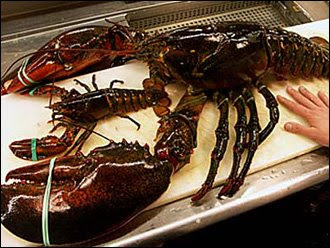Restaurant Chain Using Tip Sharing To Curb Payroll Costs
With the Great Recession pinching profits, restaurant chains both big and small are searching for every way possible to trim costs and boost profits.
Wait staff tips have become one target of such efforts.
While most patrons, it seems safe to assume, still view tips as a way of rewarding good service, restaurants are increasingly viewing those tips as a way of reducing payroll costs.
Darden Restaurants, one of the largest restaurant companies in the U.S., recently began rolling out a mandatory tip-sharing scheme in its Olive Garden and Red Lobster Restaurants.
Part of an initiative to reduce the company's annual wage costs by around $40 million, the plan, which was detailed in a recent article in the Orlando Sentinel, establishes percentages that servers are required to share with others. This new "tip-out" percent is, in turn, being used to justify reductions in hourly wage rates paid to busboys and bartenders.
Though Darden's official spokesman was reluctant to share details with the media, employees at locations where the plan has already been implemented complain that their earnings have been substantially curtailed by this new approach.
Such mandatory tip sharing stratagems have become easy to implement now that most guests pay with "plastic." Restaurants retain tips received as digital tender, then subsequently divide up and disburse the tip monies through their payroll systems.
Darden is also reportedly looking to reduce the number of full-time employees in its restaurants, replacing them instead with less expensive part-time associates.
Some in the industry have speculated that such cost cutting is shortsighted, since it reduces the financial incentive that otherwise encourages wait staff to deliver top quality service.
Wait staff tips have become one target of such efforts.
While most patrons, it seems safe to assume, still view tips as a way of rewarding good service, restaurants are increasingly viewing those tips as a way of reducing payroll costs.
Darden Restaurants, one of the largest restaurant companies in the U.S., recently began rolling out a mandatory tip-sharing scheme in its Olive Garden and Red Lobster Restaurants.
Part of an initiative to reduce the company's annual wage costs by around $40 million, the plan, which was detailed in a recent article in the Orlando Sentinel, establishes percentages that servers are required to share with others. This new "tip-out" percent is, in turn, being used to justify reductions in hourly wage rates paid to busboys and bartenders.
Though Darden's official spokesman was reluctant to share details with the media, employees at locations where the plan has already been implemented complain that their earnings have been substantially curtailed by this new approach.
Such mandatory tip sharing stratagems have become easy to implement now that most guests pay with "plastic." Restaurants retain tips received as digital tender, then subsequently divide up and disburse the tip monies through their payroll systems.
Darden is also reportedly looking to reduce the number of full-time employees in its restaurants, replacing them instead with less expensive part-time associates.
Some in the industry have speculated that such cost cutting is shortsighted, since it reduces the financial incentive that otherwise encourages wait staff to deliver top quality service.



Comments
Post a Comment
We welcome your comments.